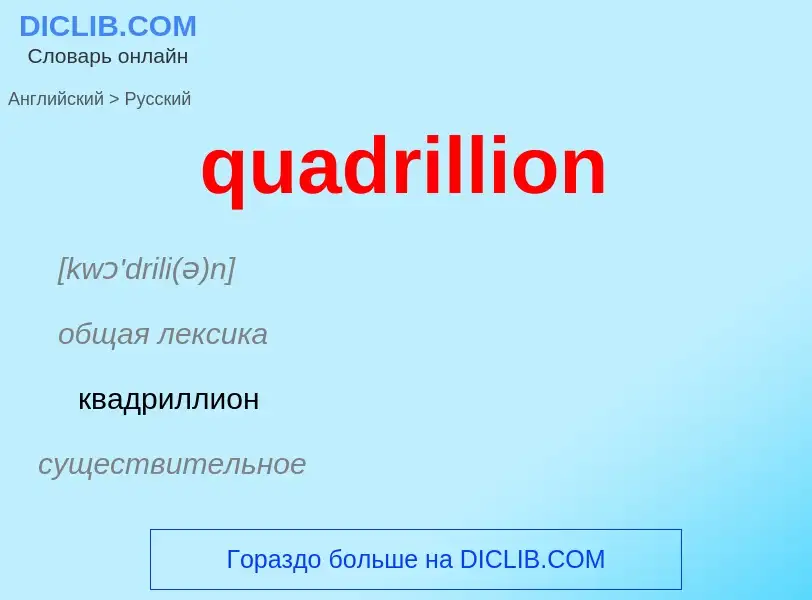Vertaling en analyse van woorden door kunstmatige intelligentie ChatGPT
Op deze pagina kunt u een gedetailleerde analyse krijgen van een woord of zin, geproduceerd met behulp van de beste kunstmatige intelligentietechnologie tot nu toe:
- hoe het woord wordt gebruikt
- gebruiksfrequentie
- het wordt vaker gebruikt in mondelinge of schriftelijke toespraken
- opties voor woordvertaling
- Gebruiksvoorbeelden (meerdere zinnen met vertaling)
- etymologie
quadrillion - vertaling naar russisch
[kwɔ'drili(ə)n]
общая лексика
квадриллион
существительное
общая лексика
единица энергии
эквивалентная квадрильону британских тепловых единиц (или количеству теплоты, получаемому от сжигания 24 млн. т нефти)
математика
септильон (
квадрильон, миллион в четвертой степени (единица с 24 нулями)
американизм
квадрильон (
тысяча в пятой степени (единица с 15 нулями)
[di'siljən]
существительное
общая лексика
дециллион (1060
[амер.]
Definitie
Wikipedia
Two naming scales for large numbers have been used in English and other European languages since the early modern era: the long and short scales. Most English variants use the short scale today, but the long scale remains dominant in many non-English-speaking areas, including continental Europe and Spanish-speaking countries in Latin America. These naming procedures are based on taking the number n occurring in 103n+3 (short scale) or 106n (long scale) and concatenating Latin roots for its units, tens, and hundreds place, together with the suffix -illion.
Names of numbers above a trillion are rarely used in practice; such large numbers have practical usage primarily in the scientific domain, where powers of ten are expressed as 10 with a numeric superscript.
Indian English does not use millions, but has its own system of large numbers including lakhs and crores. English also has many words, such as "zillion", used informally to mean large but unspecified amounts; see indefinite and fictitious numbers.


